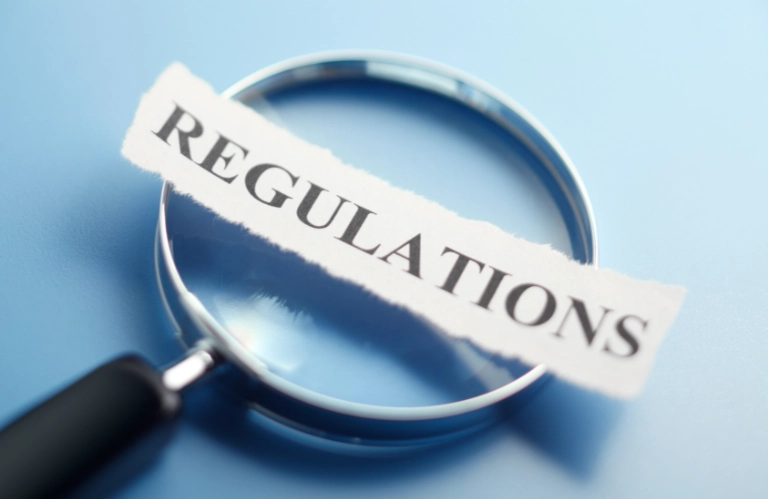The Georgian forex market has emerged as a significant player in the global financial landscape, attracting both domestic and international investors. With a focus on positioning itself as a regional financial hub, Georgia has implemented a regulatory framework to ensure transparency, investor protection, and the prevention of money laundering. This article provides an overview of the Georgian forex market and its regulations.
Legislative Framework of Georgian FX Market
The forex market in Georgia is regulated by the National Bank of Georgia (NBG), which oversees and supervises financial activities in the country. The NBG has implemented regulations to ensure transparency, investor protection, and prevent money laundering in the forex industry.
One of the key regulations is the licensing requirement for forex brokers operating in Georgia. Forex brokerage firms must obtain a license from the NBG to provide forex trading services. This licensing process involves meeting certain criteria, including minimum capital requirements, infrastructure standards, and compliance with anti-money laundering (AML) and know-your-customer (KYC) procedures. The licensing requirement ensures that only reputable and financially stable brokers can operate in the market, providing a higher level of security for traders.
The NBG also sets guidelines for leverage limits to protect traders from excessive risk. Forex brokers in Georgia are required to offer leverage within the specified limits defined by the NBG. Additionally, the NBG has implemented regulations to promote transparency in pricing and execution. Forex brokers are required to provide clear and accurate information about spreads, commissions, and other trading costs to their clients. This ensures that traders have a comprehensive understanding of the costs associated with their trades and can make informed decisions. For more clarity, you can check the FX environment details here.
To combat money laundering and terrorist financing, the NBG has implemented strict anti-money laundering (AML) and know-your-customer (KYC) requirements. Forex brokers are obligated to implement robust customer identification and verification procedures. Forex brokers are obligated to conduct due diligence checks on clients, monitor transactions, and report any suspicious activities to the appropriate authorities.
The NBG also emphasizes the need for investor education and protection. Forex brokers are encouraged to provide educational materials and resources to help traders understand the risks involved in forex trading. The NBG aims to empower investors with knowledge and skills to make informed decisions and mitigate risks.
How Popular is FX in Georgia?
Forex trading has gained significant popularity in Georgia in recent years, reflecting a growing interest among individuals and businesses to participate in the global currency markets. The combination of a favorable regulatory environment, accessibility, and potential for profit has contributed to the increasing popularity of forex trading within the country.
One of the main trends in the Georgian forex market is the rise of online forex brokers. These brokers provide individuals with user-friendly platforms to trade various currency pairs, commodities, and other financial instruments. The convenience and flexibility offered by online trading platforms have attracted a diverse range of investors, including both experienced traders and newcomers.
Moreover, the availability of educational resources and training programs has played a crucial role in popularizing forex trading in Georgia. Local brokers and financial institutions offer educational opportunities such as seminars, webinars, and informative materials to help traders improve their knowledge and skills. This emphasis on education has empowered individuals to engage in forex trading with confidence, contributing to the market\’s growth.
The development of the Georgian forex market has been remarkable. The introduction of robust regulations by the National Bank of Georgia (NBG) has fostered a sense of security and trust among market participants. This has attracted reputable international brokers to enter the market, further driving its growth and competitiveness. The establishment of local forex companies and brokerage firms has also played a vital role in expanding the market.
The increasing integration of Georgia into the global economy has opened up new trading opportunities. Traders in Georgia can access global markets and capitalize on fluctuations in major currencies, commodities, and other financial assets. The strategic location of the country, serving as a gateway between Europe and Asia, provides traders with a unique advantage in terms of timing and market access.
The fast-paced development of the Georgian forex market is evident in the increasing number of active traders and the growing trading volumes. For example, over the past few years, the number of registered forex traders in the country has witnessed a significant surge. Additionally, trading volumes have experienced steady growth, indicating a higher level of market activity and participation.
In conclusion, forex trading has gained substantial popularity in Georgia, driven by favorable regulations, accessibility, and educational initiatives. The market has witnessed the rise of online forex brokers, increased educational resources, and a growing number of active traders. With the country\’s strategic location and expanding integration into the global economy, the Georgian forex market is expected to continue its rapid development, providing ample opportunities for traders and investors alike.








